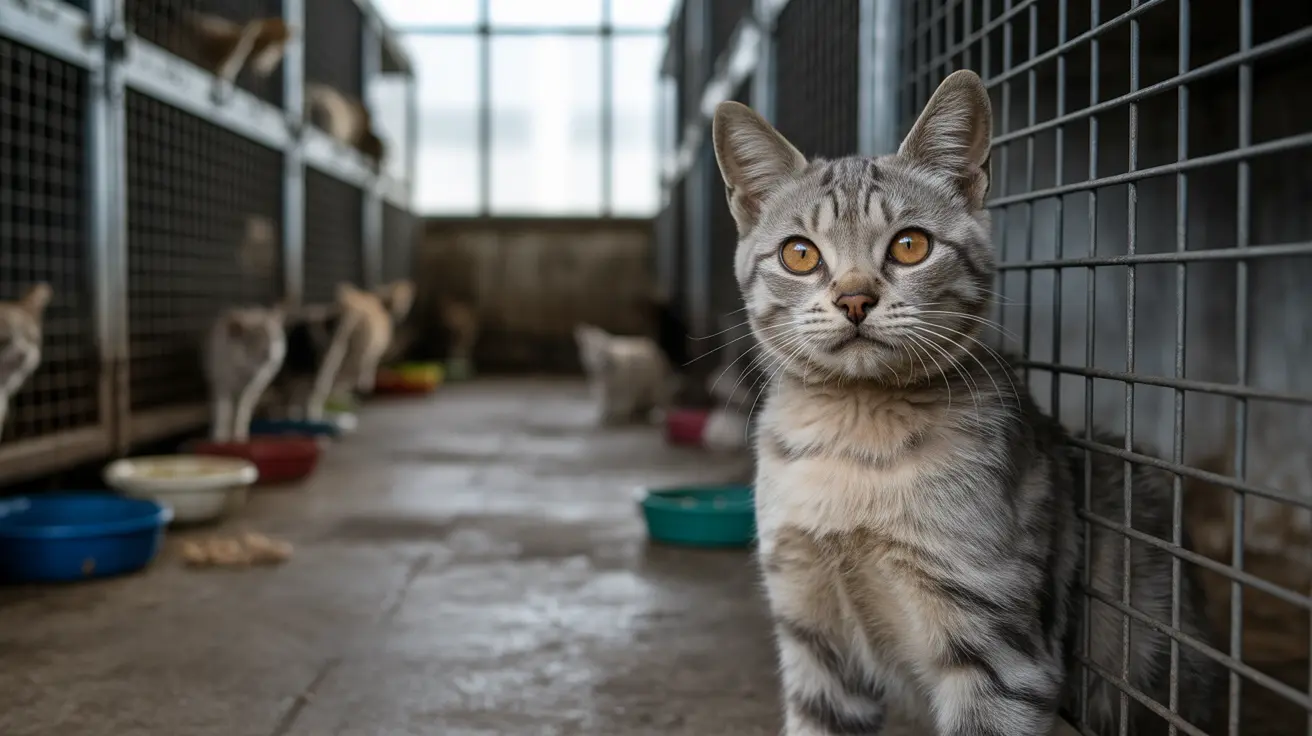Black cats have long captured our imagination with their sleek, mysterious appearance and rich cultural history. From the panther-like Bombay to the distinctive Scottish Fold, these ebony-coated felines make wonderful companions and have some fascinating characteristics that set them apart from other cats.
In this comprehensive guide, we'll explore everything you need to know about black cats, including popular breeds, genetic factors behind their striking appearance, health considerations, and why these magnificent creatures deserve more recognition in the pet world.
Popular Black Cat Breeds and Their Characteristics
The world of black cats includes several distinct breeds, each with unique traits and personalities. Let's explore some of the most notable ones:
The Bombay: The Mini Panther
The Bombay breed stands out with its glossy black coat that resembles polished patent leather. These cats feature striking copper or golden eyes that contrast beautifully with their jet-black fur. Known for their friendly and outgoing personalities, Bombays often form strong bonds with their human families and enjoy being the center of attention.
The Scottish Fold: Unique Beauty in Black
While not exclusively black, Scottish Folds can sport beautiful black coats alongside their signature folded ears. These cats are renowned for their sweet temperaments and adaptable nature, making them excellent family pets. Their dense coat requires regular grooming to maintain its lustrous appearance.
The Science Behind Black Fur
The striking appearance of black cats isn't just about aesthetics – it's a fascinating example of genetics at work. The dominant variant of the B gene, combined with a recessive agouti gene, creates the solid black coloration we admire. This genetic makeup can also provide some unexpected health benefits, including potential resistance to certain feline diseases.
Health and Care Requirements
General Health Considerations
Black cats require specific care considerations to maintain their health and beautiful appearance. Regular veterinary check-ups are essential, particularly for breeds like the Bombay that may be prone to certain health conditions such as hypertrophic cardiomyopathy.
Coat Care and Sun Protection
Black cats' coats can be particularly sensitive to sun exposure, which may cause the fur to develop a reddish-brown tinge. Providing adequate shade and indoor spaces during peak sunlight hours helps protect their distinctive coloring. Regular grooming helps maintain the signature glossy appearance of their dark coat.
Dispelling Common Myths
Despite centuries of superstition, black cats are simply cats with melanin-rich fur – their color has no bearing on their personality or luck-bringing capabilities. In fact, many cultures worldwide consider black cats to be symbols of good fortune and prosperity.
Frequently Asked Questions
What genetic factors determine why black cats have their solid black coats?
Black cats get their coloring from a dominant form of the B gene combined with a recessive agouti gene. This genetic combination results in the production of high levels of melanin, creating their characteristic solid black coat.
Are there specific health concerns or advantages associated with black cat breeds like the Bombay or Scottish Fold?
Bombay cats may be prone to heart conditions and respiratory issues, while Scottish Folds can experience cartilage-related problems. However, the melanin in black cats' fur may provide enhanced immune resistance against certain diseases.
How can I protect my black cat's coat from sun damage and discoloration?
Provide plenty of shaded areas and limit direct sun exposure, especially during peak hours. Indoor spaces with filtered sunlight are ideal. Regular grooming and a healthy diet also help maintain coat health.
Do black cats have different personality traits compared to cats of other colors?
No scientific evidence supports a connection between coat color and personality. Individual temperament is determined by genetics unrelated to fur color, early socialization, and environmental factors.
Why are black cats less likely to be adopted, and how can owners help change this perception?
Historical superstitions and misconceptions have led to lower adoption rates for black cats. Owners can help by sharing positive experiences, participating in black cat advocacy, and educating others about these wonderful pets.
Conclusion
Black cats are remarkable animals that deserve appreciation for their unique beauty and individual personalities. Whether you're considering adopting one or already share your home with a black cat, understanding their specific needs and characteristics helps ensure a happy, healthy life for these stunning felines.






